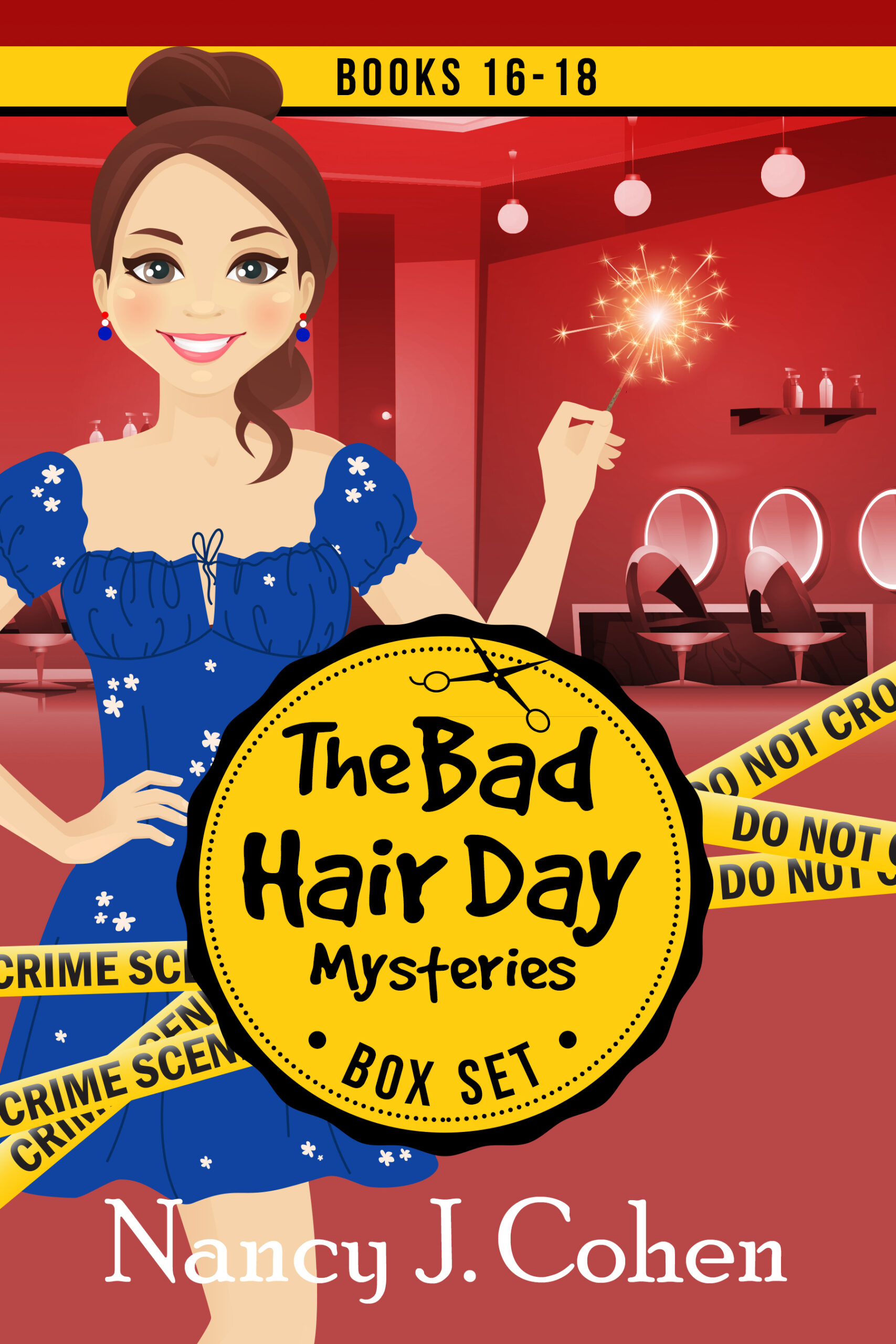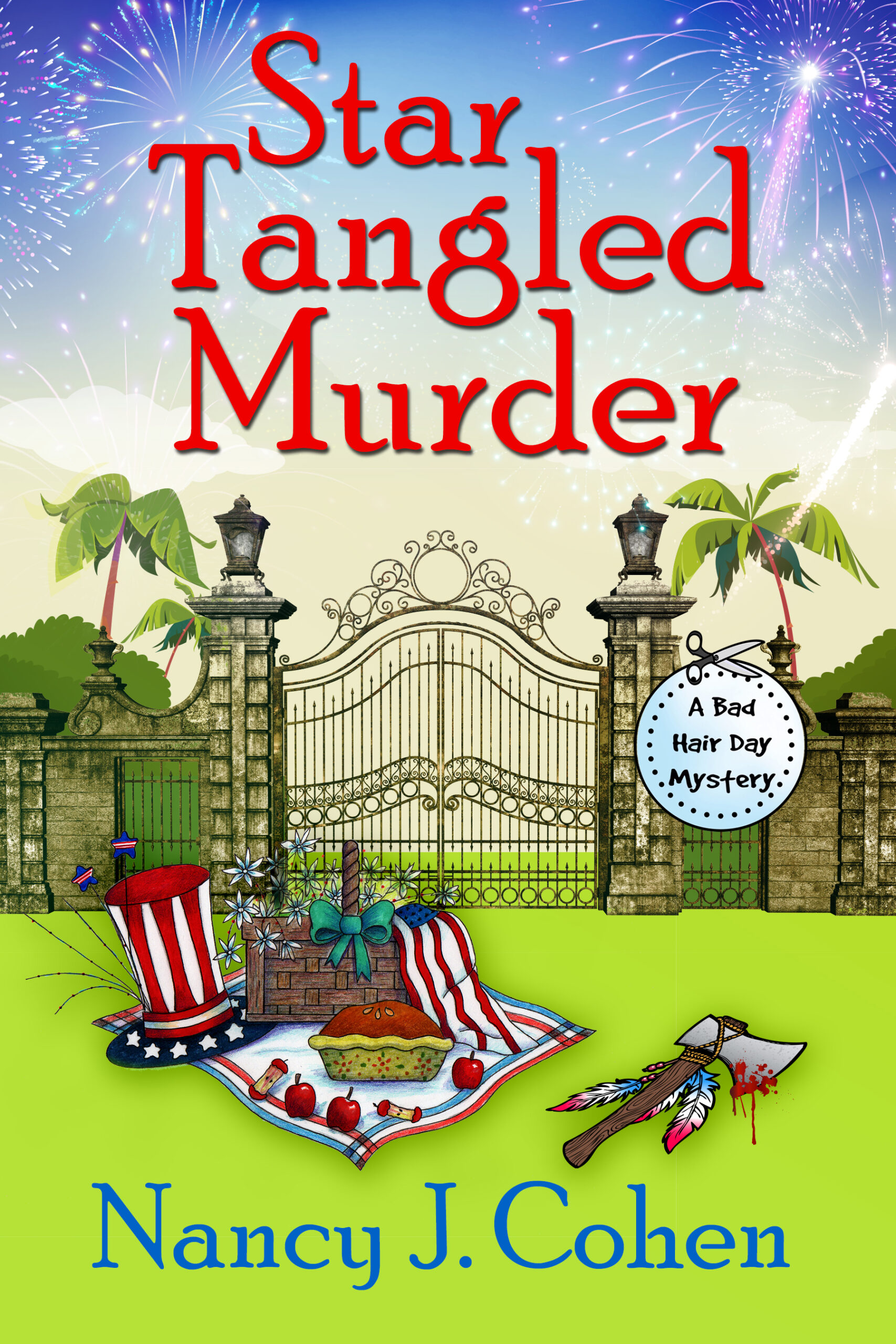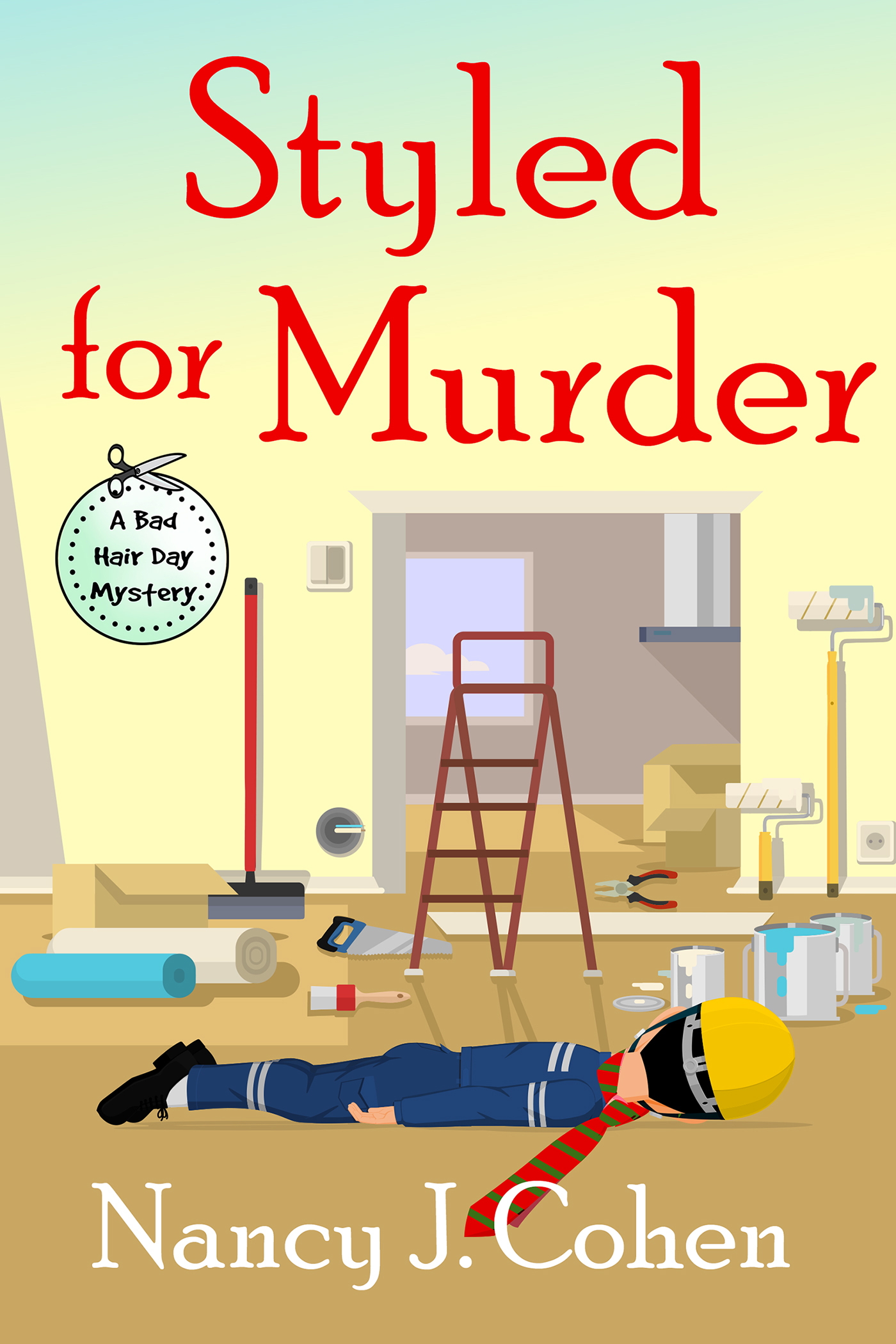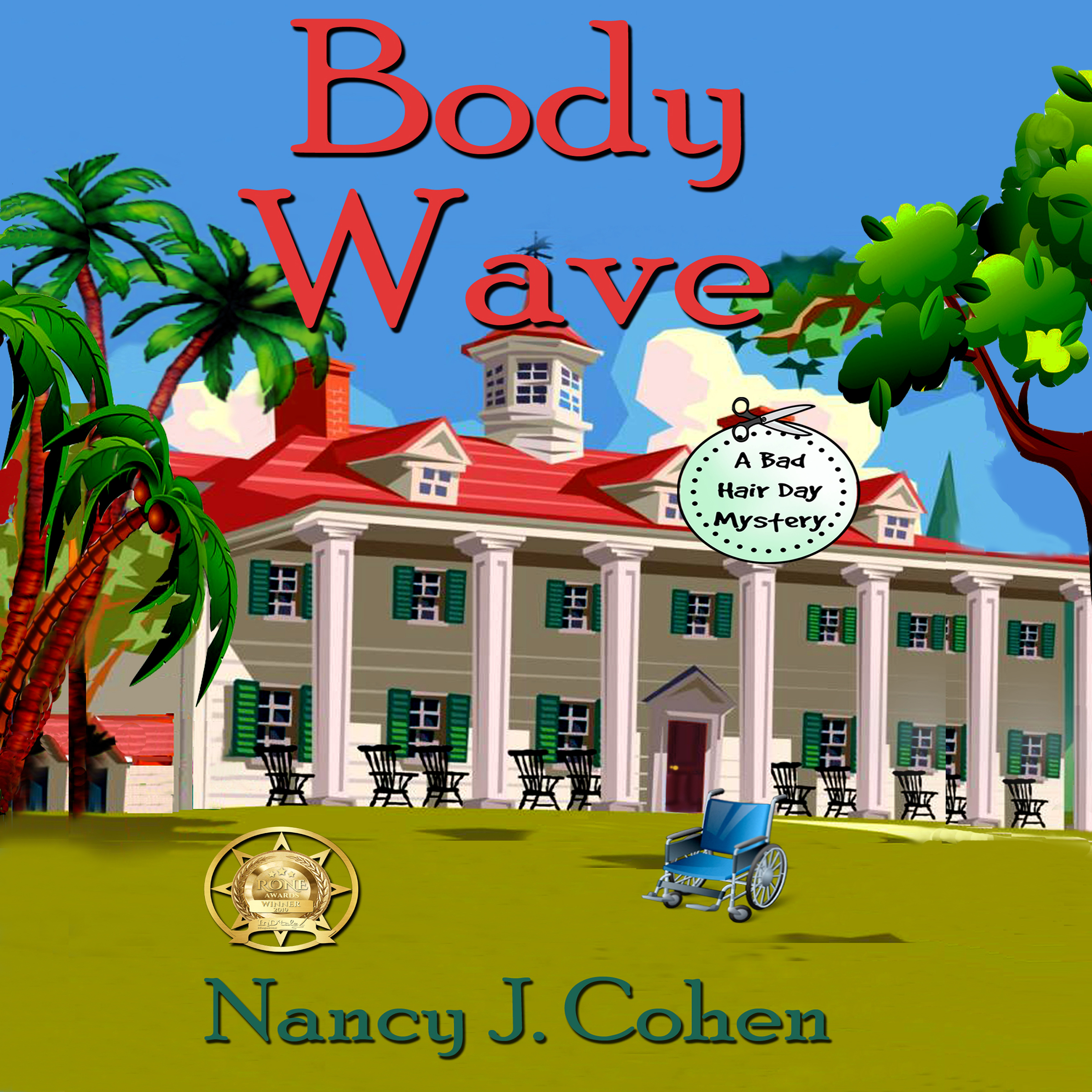No matter how many times you review your manuscript, you’ll always find something to correct. I am reading through Peril by Ponytail for the third or fourth time. And here are the kinds of things I am still finding to correct.
Moustache or mustache? Both spellings, according to the dictionary, are correct. But I use the first variation 5 times and the second variation 3 times. I changed them all to “mustache” because it seems to be more common.
Nightstand or night stand? I have these both ways. Which is it? Considering that my editor did not correct the first usage, I changed the second one to match.
Consistency is the key. A particular word should have the same spelling throughout the story.
I also am looking to reorder sentences for better flow of logic, like these passages:
Original:
An attractive redhead at the front desk glanced up at their approach. “Carol, I see you’ve brought our guests. How was the drive?”
“Not bad. What’s going on, Jan? Why is the sheriff here?”
The fortyish lady thumbed her finger at an inner staff door. “You’d better ask your husband, hon.”
“Marla and Dalton Vail, meet Janice Sklar. Jan is our Director of Reservations.”
Janice flashed them a smile. “I expect you’ll want your room keys. You have Hacienda Number Seventy-Five. Here’s a map.” She circled a few buildings and offered a quick review of their room location and other highlights. “Do you need help with your luggage?”
“I’ll get it, thanks.” Dalton stepped up to the counter to complete the formalities. That included the key to a loaner car from Wayne.
“This way,” Carol said when he’d finished. She led them through a door marked Private.
Revised:
An attractive redhead at the front desk glanced up at their approach. “Carol, I see you’ve brought our guests. How was the drive?”
“Not bad. Marla and Dalton Vail, meet Janice Sklar. Jan is Director of Reservations.”
Janice flashed them a smile. “I expect you’ll want your room keys. You have Hacienda Number Seventy-Five. Here’s a map.” She circled a few buildings and offered a quick review of their room location and other highlights. “Do you need help with your luggage?”
“I’ll get it, thanks.” Dalton stepped up to the counter to complete the formalities. That included the key to a loaner car from Wayne.
“What’s happening, Jan? Why is the sheriff here?” Carol asked.
The fortyish lady thumbed her finger at an inner door. “Ask your husband, hon.”
“This way,” Carol told her guests. She led them through a door marked Private.
I felt Carol would more logically introduce her guests right away then ask about the sheriff.
Go for more precise wording, like in this example. I also changed swarthy to sinewy to avoid stereotyping:
From:
The swarthy laborers glanced at the new arrivals and then went back to work. Marla hoped they spoke English as they approached one fellow applying a coat of paint to a window trim. She was careful to sidestep past a ladder on the walkway and tools on the ground.
To:
The sinewy laborers glanced at the new arrivals and then went back to work. Marla hoped they spoke English as she and Dalton approached one fellow applying a coat of paint to window trim. She sidestepped past a ladder on the walkway and tools on the ground.
Here’s a sentence that needs completion to improve clarity.
Original:
“He [the sheriff] came to tell us Garrett Long is dead. His body was found out on the Snakehead Trail by a couple of hikers.”
“What? That’s not possible.” Jesse’s tan faded under his sudden pallor.
“I know. It’s hard to believe Garrett would let his caution slide. Hopefully the sheriff will investigate and determine what really happened.”
Revised:
“He [the sheriff] came to tell us Garrett Long is dead. His body was found out on the Snakehead Trail by a couple of hikers.”
“What? That’s impossible.” Jesse’s tan faded under his sudden pallor.
“I know. It’s hard to believe Garrett would be so careless as to fall off a ledge. Hopefully, the sheriff’s office will investigate and determine what happened.”
One must have sharp eyes and an alert mind to inspect your own work. Eventually, we get too close to the material. We send it off to our editor, who hopefully picks up any errors we missed. We’ll get back the clean copy for another read-through and then it’s done. If anything slipped past, it wasn’t due to negligence on our part. We tried to catch everything. But no matter how many times we scrutinize our work, the editing process is never done.























I just finished going through a ms first time around and changed many word orders, etc. I’m sure I’ll find plenty of changes to make the second time around. After all, we want to give our readers the smoothest read possible.
Yes, we sure do. No matter how many rounds, we’ll still find things to fix.
I had the moustache/mustache dilemma. Another word I spelled “correctly” two different ways: duffel/duffle. And since I’m a ‘move stuff around as I write” kind of writer, re-reading for flow is vital. Too many times I’ve inserted description or thoughts after a question and then the answer is too far away for readers to remember.
My critique group gets me on this one: “He asked a question and she didn’t answer,” Oops. Or, my editor will catch this: I interspersed exposition between the question and the answer, so by the time you get to the response, the reader has forgotten the question. That’s what you’re talking about above.
The revisions are better than the first version. Great changes. Question: why put “the sheriff” in brackets? Why not just say the sheriff instead of: He [the sheriff].
Thanks for sharing.
The sheriff is in brackets as a note to you as to who is speaking. It’s not in the book.
Your writing is great! Thanks.
You are welcome. Thank YOU for visiting my blog.
Great post, Nancy. Clarity, logic, and the smooth flow of words are things I strive for in my writing. But even when I review my work a second or third time, I find places where I can improve on what I’ve written. Changing around sentences or replacing words with more precise words can be challenging, but also satisfying.
Yes, it’s certainly challenging. What’s hard is letting go and sending the work in, knowing there is always still more that can done but that you get too close to the material to see it.
Your advice and insights are always so interesting and well written, Nancy. Enjoyed–and learned from this one–as I always do. Thanks for taking the time to share with us 🙂
My pleasure, Diane. I appreciate your following along.
Wouldn’t miss it!
This blog is awesome it has got all the points i wanted to discuss, it has fulfilled my knowledge,Thank you.
Good edits. I seem to make the same kind of mistakes and no matter how many pairs of eyes (including a paid editor) read my MS, a few little errors slip through. I have the most problems with commas. Arghh!
I noticed my characters scrape their hands through their hair. It’s okay if it’s one person’s habit, but not all of them! And I only caught this repetition during my latest read-through. You’re right, something always slips past us.
Amen, Nancy :-). While I’ve learned to be more flexible with traditional, ‘hard-core’ grammar, we always see a thing or two we can’t believe we missed the hundredth time LOL
That’s for sure. And often a reader is the one who points it out to us.